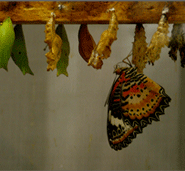“When you tell yourself the story of your life, the story of your day, you edit and rewrite and weave a narrative out of a collection of random experiences and events. Your conversations are fiction. Your friends and loved ones—they are characters you have created.” - Keith Ridgeway
Stories are teased out of our everyday. The things around us, within. All art is fiction. In that each work tells a story and must be deconstructed and read like a text. We look at an artwork and grasp its references, its multiple layers. We stare and weave a narrative inside our heads.
Why do we tell stories? Kerouac said “I’m writing this book because we’re all going to die.” Shakespeare’s sonnet 18 attributes art (words) with the ability, unlike us, to eventually transcend time.
Editor's Note.
This issue may not be true, but its definitely real. These existential questions of truth and reality are ones that trouble us most in our late teens, when we are being transformed most rapidly, both physiologically as well as psychologically. Truth was always deduced by a process of logic: If a is more than b and b is more c, then a is more than c. That is true, and therefore a kind of axiom. Then, as we grew older, we learnt about the 'paradoxes'. If a is a liar and claims that this sentence is false, is it true?
Read MoreAlso in this issue
Illusion: Seeing Beyond Seeing
Meaning: In Search of Significance.
Melody: A Different Tune
Rhythm: Ordering Time






